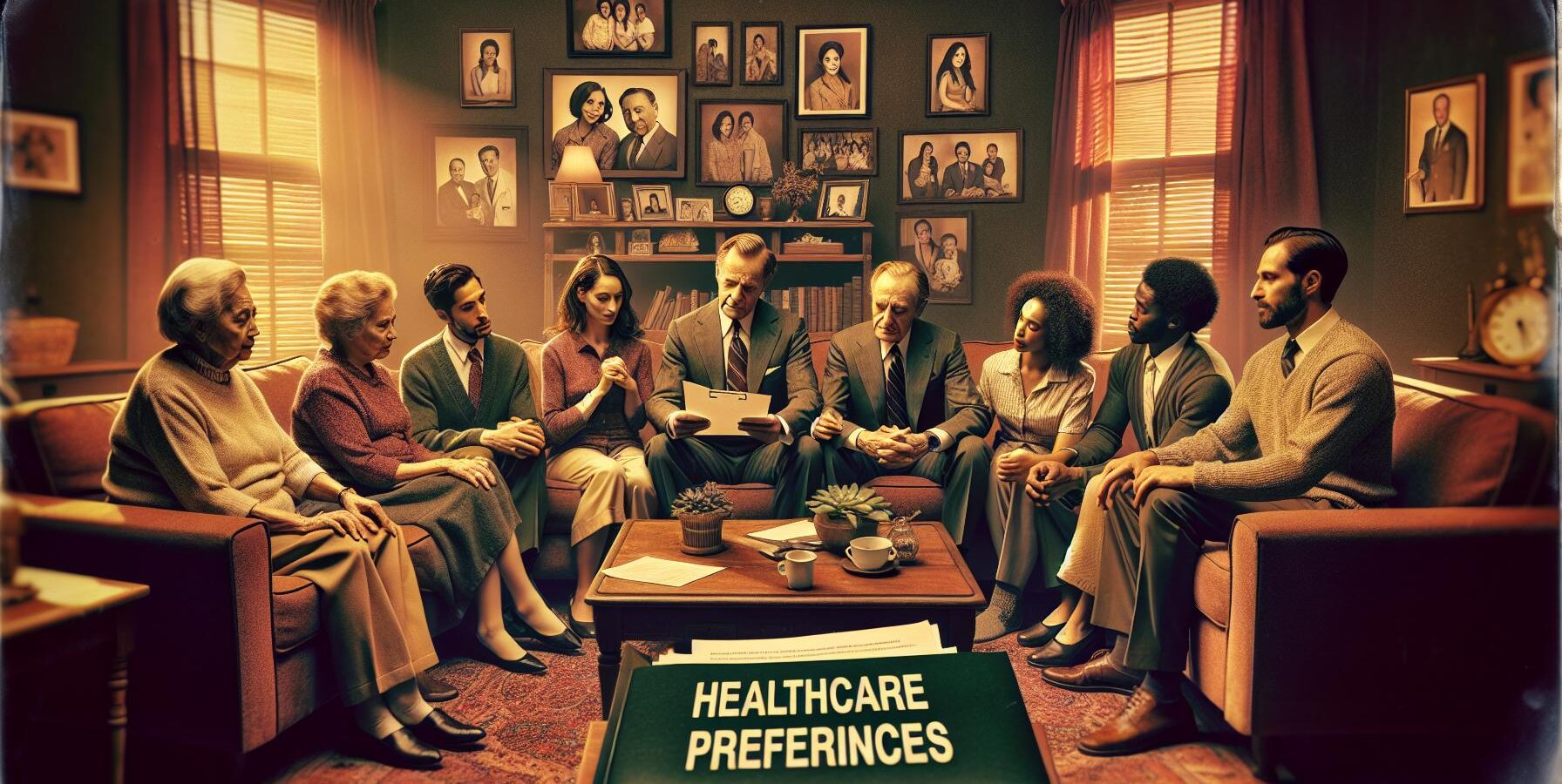Planning for the future often involves making tough decisions, especially when it comes to healthcare. An MD living will is a powerful legal document that ensures an individual’s medical wishes are respected if they’re unable to communicate. It provides clarity and peace of mind for both the person and their loved ones during challenging times.
This document goes beyond just outlining preferences—it acts as a guide for healthcare providers, ensuring treatments align with the individual’s values. Whether it’s specifying life-sustaining measures or outlining comfort care, an MD living will empowers individuals to maintain control over critical decisions. Understanding its importance can help families navigate complex medical situations with confidence.
What Is An MD Living Will?
An MD living will is a legal document outlining an individual’s healthcare wishes in case they’re unable to communicate decisions themselves. It specifically details preferences regarding medical treatments, life-prolonging procedures, organ donation, and comfort care. By documenting these directives, it helps avoid uncertainty during critical healthcare situations.
It serves as a vital tool for both patients and healthcare providers. Physicians and medical staff reference the living will to align care with the individual’s stated preferences, reducing the likelihood of unwanted procedures. For example, it can indicate whether someone opts out of mechanical ventilation or desires palliative care in terminal conditions.
Family members also benefit from an MD living will, as it removes the burden of making difficult decisions by clearly stating the individual’s wishes. This clarity minimizes conflicts and ensures the person’s values are honored.
Importance Of An MD Living Will
An MD living will plays a vital role in ensuring that medical care aligns with an individual’s preferences during critical health situations. It provides clarity for loved ones and healthcare providers, fostering informed medical decision-making.
Ensuring Your Wishes Are Respected
An MD living will documents specific healthcare preferences like life-sustaining treatments and comfort care measures. These directives guide medical professionals when the individual is incapacitated or unable to communicate, ensuring treatments align with personal values. Without this document, decisions might conflict with the individual’s beliefs due to a lack of clear medical directives. For example, procedures like mechanical ventilation or artificial nutrition may be administered against the person’s will.
Preventing Family Disputes
Clear guidance in an MD living will reduces the likelihood of disagreements among family members regarding medical decisions. If preferences are explicitly documented, families can rely on the individual’s directives instead of making assumptions or conflicting choices. For instance, it can prevent disputes over whether to proceed with resuscitation efforts or withdraw life support. This clarity minimizes emotional stress, fostering unity during crisis situations.
How To Create An MD Living Will
Creating an MD living will involves documenting an individual’s healthcare preferences and ensuring legal compliance for enforceability. A detailed and accurate document enhances clarity for medical providers and loved ones.
Key Components To Include
- Personal Identification: Include full legal name, birth date, and contact information to precisely identify the individual.
- Healthcare Preferences: Specify treatments, such as resuscitation, ventilation, or tube feeding, and conditions under which they apply.
- Comfort Care Directives: Outline palliative care wishes, including pain management and hospice care preferences.
- Organ Donation Choices: State decisions on donating organs, tissues, or body for research purposes.
- Designated Healthcare Proxy: Name a trusted individual authorized to make decisions if the person becomes incapacitated.
Clarity and specificity in these sections ensure effective guidance for all parties involved.
- Compliance With State Laws: Ensure the MD living will meets the legal standards of the state where the individual resides, as laws vary.
- Signatures And Witnesses: Include the individual’s signature and signatures from witnesses, often two impartial adults or a notary public.
- Medical Professional Involvement: Consider consultation with a healthcare provider to ensure that medical terms and directives are appropriately addressed.
- Accessibility: Keep the document readily available, with copies given to the healthcare proxy, primary physician, and trusted family members.
- Review And Updates: Update regularly, especially after major life events, to ensure the document reflects current preferences.
These legal steps validate the MD living will, safeguarding the individual’s choices during medical emergencies.
Common Misconceptions About MD Living Wills
Many misunderstand the purpose and scope of an MD living will, leading to confusion during its preparation or application. Addressing these misconceptions can ensure individuals fully grasp this document’s value.
Differences From Power Of Attorney
An MD living will is not the same as a power of attorney. The living will outlines medical preferences for end-of-life care when a person cannot communicate. Conversely, a power of attorney designates someone to make decisions on behalf of the individual. While both deal with healthcare in certain contexts, the living will specifies predetermined choices, whereas a power of attorney grants decision-making authority to another person.
Revoking Or Updating The Document
An MD living will is not permanent and can be modified or revoked. Changes can be made when personal preferences, health conditions, or beliefs evolve. To revoke or update the document, individuals must follow state-specific legal requirements, often involving the creation of a new document or destroying the original. Keeping the most recent version accessible ensures healthcare providers and family members follow the updated preferences.
Benefits Of Having An MD Living Will
An MD living will provides clear medical directives, ensuring healthcare decisions reflect personal values during incapacitation. This document eliminates ambiguity regarding life-sustaining treatments, palliative care, and other medical interventions, reducing the risk of unwanted procedures.
Family members experience less emotional strain when an MD living will exists, as it provides clear instructions on treatment preferences. Examples include decisions about artificial ventilation, resuscitation, or tube feeding, which can be emotionally charged without documented guidance.
Healthcare providers can deliver precise, patient-aligned care by following the directives outlined in an MD living will. This alignment minimizes potential ethical conflicts in treatment decisions, ensuring compliance with the individual’s preferences, such as comfort-focused care or refusal of invasive measures.
Legal validity ensures that medical wishes are enforceable, offering protection against potential disputes in critical situations. By including details such as organ donation choices or withdrawal of life support, an MD living will prevents misinterpretation of the individual’s consent.
Effectively, an MD living will bridges communication between patients, loved ones, and medical teams, fostering unity and reducing disagreements during crises. Its clarity upholds the individual’s autonomy while assisting families and health professionals in navigating difficult medical decisions.
Discover the Power of BlueNotary:
Integrate your Business, Title Company, or Law Firm to Satisfy your Customers and Decrease Turnaround
Get a document Notarized/Sign-up
Join the Free Notary Training Facebook Group
Conclusion
An MD living will is a powerful tool that safeguards an individual’s medical preferences while offering clarity and peace of mind during challenging times. By documenting specific healthcare directives, it ensures that treatments align with personal values and reduces emotional strain on loved ones.
This legal document fosters clear communication between patients, families, and healthcare providers, minimizing conflicts and promoting unity during critical situations. Regularly updating and maintaining accessibility to the MD living will further guarantees that an individual’s wishes are respected when it matters most.
Frequently Asked Questions
What is an MD living will?
An MD living will is a legal document that outlines an individual’s preferences for medical care in situations where they are unable to communicate their decisions. It covers treatment options, life-sustaining procedures, organ donation, and comfort care, ensuring that healthcare aligns with personal values and beliefs.
Why is an MD living will important?
An MD living will ensures that your medical wishes are respected during critical situations. It provides clear guidance to healthcare providers and loved ones, avoiding ambiguity, reducing family conflicts, and preventing unwanted procedures while honoring your autonomy.
Who should have an MD living will?
Anyone 18 or older can benefit from an MD living will, especially those with specific medical preferences or chronic conditions. It’s a vital document for anyone wanting to ensure their healthcare aligns with their values during incapacitation.
How is an MD living will different from a power of attorney?
An MD living will specifies your medical treatment preferences, while a power of attorney designates someone to make decisions on your behalf. Both documents can work together to ensure comprehensive healthcare planning.
Can an MD living will be changed or revoked?
Yes, an MD living will can be modified or revoked at any time as long as the individual is mentally competent. It’s important to keep the most recent version accessible and inform relevant parties about updates.
What should be included in an MD living will?
An MD living will should include your healthcare preferences, life-sustaining treatment choices, comfort care directives, organ donation wishes, and the designation of a healthcare proxy if desired. Ensure the document complies with local laws and includes required signatures.
How does an MD living will benefit families?
An MD living will reduces emotional strain and family conflicts by providing clear instructions on medical decisions. It helps loved ones feel confident in honoring the individual’s wishes, fostering unity during challenging times.
Is an MD living will legally binding?
Yes, an MD living will is legally binding when completed according to state laws. It ensures your medical preferences are enforceable and guides healthcare providers and family members during medical crises.
How often should I update my MD living will?
It’s recommended to review and update your MD living will regularly, especially after major life events or changes in your health, beliefs, or treatment preferences. This ensures your directives remain current and relevant.
Where should I keep my MD living will?
Keep your MD living will in an accessible place and provide copies to your family, healthcare proxy, and primary care provider. It’s important that key individuals can access the document quickly in an emergency.








